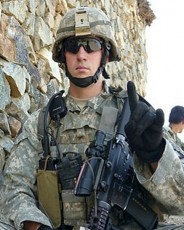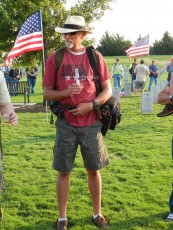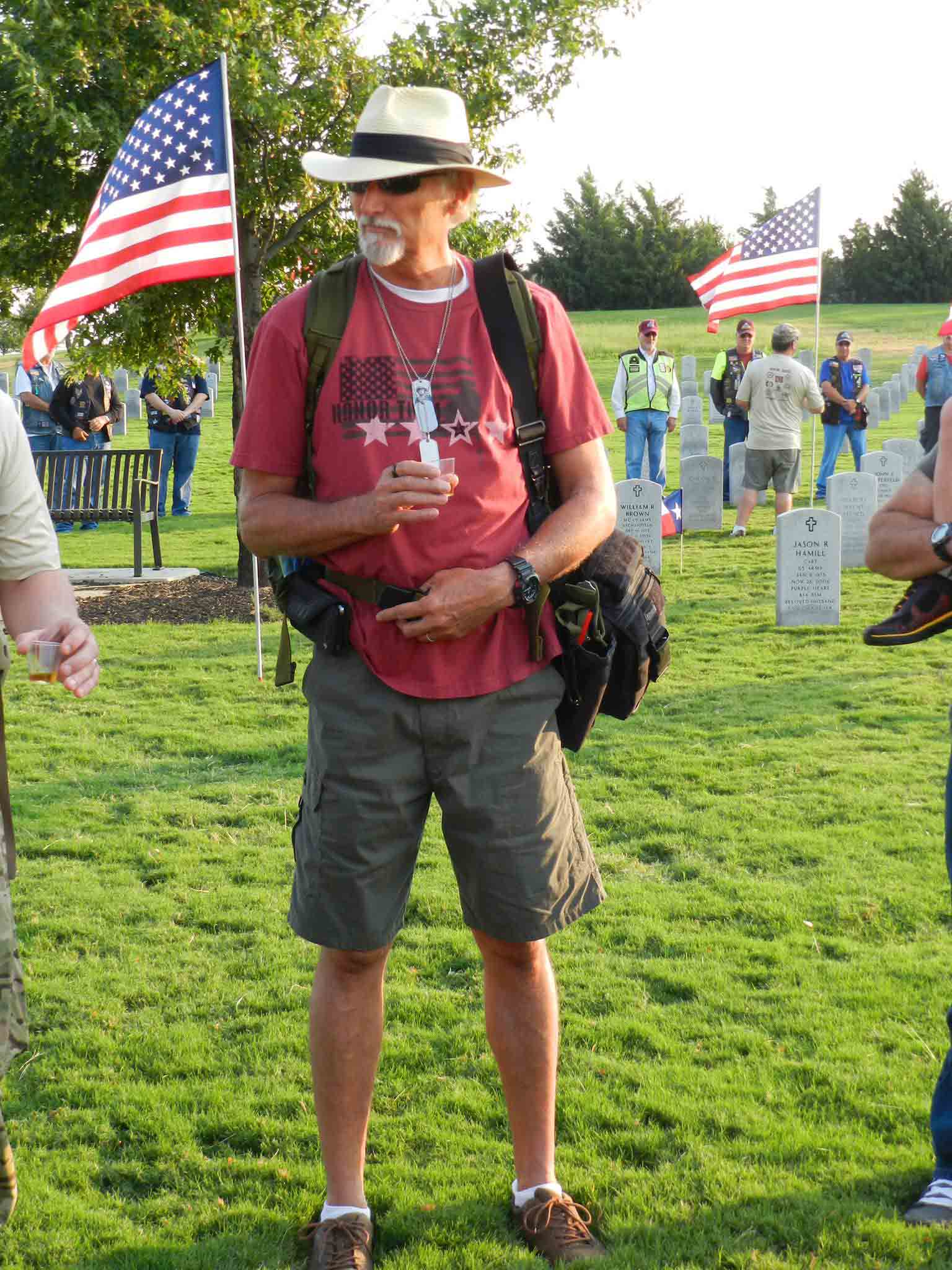By Brandy Voirin/ reporter

Terry Burgess never imagined becoming a public speaker, author or a gold-star dad. But that’s exactly what he is.
On Dec. 3, Burgess will speak on NE Campus at the 6 p.m. showing of the documentary The Hornet’s Nest.
The film, recorded by journalists Mike and Carlos Boettcher, follows U.S. troops during nine days of combat in Afghanistan. Burgess has a personal reason for speaking about this film.
After being laid off twice in two years from the same bank, Burgess was jobless for 18 months. But things were finally starting to look up.
“I had an idea, and my wife Beth encouraged me to write all my ideas down,” he said. “I finally listened, and the first book was published. I never dreamed of being an author.”
This wasn’t the first surprise in their lives.
“One day, Bryan [their son] said he was joining the Army,” Beth Burgess said. “He didn’t even ask. He just told us. After 9/11, he felt it was the right thing to do. We were surprised but supportive of his choice.”
The couple were one day away from the launch of Burgess’ second book before being blindsided with an early morning phone call.

Photos courtesy Terry Burgess
“We were still in the bed asleep and then everything stopped,” Terry Burgess said.
Bryan had died in combat in Afghanistan. He is survived by a wife and two children.
“It was shattering,” Terry Burgess said. “And at rushing speed, thoughts, memories and regrets all played through my mind. Death was always an option, but the last thing I expected.”
After the funeral, Terry Burgess said he withdrew from writing and went into a dark place. Books didn’t matter anymore. He tried to focus on happier memories of Bryan, but his mind flooded with thoughts of all the letters and care packages he planned to send to Iraq and Afghanistan but never did. He found comfort in another place.
“The bottle made it go away. I’ve always had a drink or two to unwind, but this was different,” he said. “I would sit on the deck and just drink. I could drink, then sleep.”
Beth Burgess, who missed her last opportunity to see Bryan the year before for his birthday because she was working, dove herself deeper into her work and in taking care of her husband to soothe the pain, she said.
“Losing his child was the worst thing that could ever happen to a person,” she said. “I’m a fixer, and since I was supporting both of us financially, I just took on everything else so he could grieve.”
At first, lots of phone calls rushed in and care packages were sent to the grieving parents, but then it all stopped, she said.
“People go back to their lives, but for us, our lives will never be the same,” she said. “You just don’t know what to do.”
Then a phone call came that changed both of their lives. Mike Boettcher had footage involving Bryan from a battle in Afghanistan he planned to use for an ABC Nightline segment, but producer David Salzberg wanted to turn the footage into a film. Burgess agreed.
“The day I got that call, I put the bottle down,” Terry Burgess said. “I put my energies into promoting the film and telling Bryan’s story.”
The Burgesses have flown around the world speaking to others about Bryan, placing flags on veterans’ cars and creating a support system of hope.
“This film is like a gift,” Terry Burgess said. “Zander, Bryan’s son, was 3 years old at the time, so he didn’t remember Bryan at all. The film shows what his daddy was like. It shows the man he was.”
For the Burgesses, their mission is twofold.
“Awareness and the cost of freedom and how it’s paid is something we are hoping to get across to anyone watching this film,” Beth Burgess said. “These guys are more than just robots playing games, more than just a number. They are someone’s family member, and they are fighting the best way they can.”
Beth Burgess has found a new way to cope with the loss of her son.
“I talk daily to the soldiers’ families in Bryan’s squad. We have an amazing network,” she said. “It was tough at first, but we let them know we don’t blame them and we are here for them.”
By accident, the Burgesses created the network they didn’t have.
“Society expects you to flip a switch and go back to work, and be normal, and it’s not possible for them or us,” he said. “Supporting each other works, and there are more agencies out there veterans don’t know about. This is now my mission, my new job — telling Bryan’s story.”
As for writing stories, Terry Burgess is still doing that, too.
“It took a while, but I was on the deck one day thinking of Bryan, and a flood of ideas came pouring in, so much so that I went from writing them down to typing them on the computer,” he said. “I felt it was Bryan speaking to me through the night sky saying, ‘It’s OK, Dad, to write again. Go ahead and write.’ So I did, and I wrote my third book in two days.”

